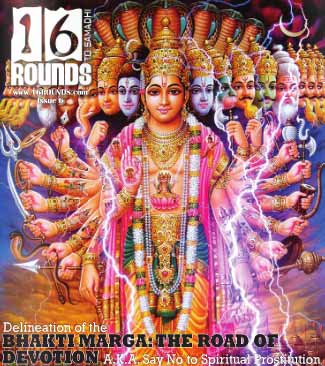A Question About Democracy
For anyone who grows up in America, the idea of democracy is planted in the brain at birth, and fed through school, media, and society as a whole. This is to such a degree that the question of “Why democracy?” may not even come to mind. The problem is that when people fail to ask the question why and do not strive to analyze their creed, the result is a society full of fanatics. Fanaticism is a belief or behavior which involves uncritical zeal. The fanatic displays very strict standards and little tolerance for contrary ideas or opinions. If a world of intelligence is at all desired, such a state of society is very troublesome. Therefore, let us look deeper into democracy.
Defining the Subject Matter
Democracy is a system of government in which everyone has an equal opportunity to influence the actions society makes as a whole. This is based on the idea that everyone is equal, and thus no one should be given precedence over anyone else. Majority rule is an expression of this equal influence opportunity paradigm. For the last 250 years democracy has been bolstered as the most logical, ethical system of government, and on that basis, at least externally, America has sent thousands of soldiers to the Middle East and Africa to make sure that no one forgets it. America’s imposition aside, how does this democratic philosophy stand up to the real world?
Finding the Truth
Everyone wants the best for the world. Even Hitler felt that his actions were for the ultimate benefit of human kind. So how can the best be brought about in this world? How should society determine what are the best actions to make?
Let’s imagine a scenario. The Large Hadron Collider in Europe has ruptured, and it is on the verge of meltdown. What should be done? Or for a less urgent example, let’s say a decision is being made about where to position troops throughout the world, with diplomatic relations needed to be taken into consideration, along with so many other factors (if I were experienced in this field I would know what those factors are). Would a majority opinion be the best way to figure out what to do in either of these instances? Or would the opinion of an expert be a more logical choice? I think that most people would lean towards the latter in these instances.
Is it not similarly logical that in other decisions that are made, the people making the decisions should also be those who are most qualified? As the Greek philosopher Plato said, “A good decision is based on knowledge, not numbers.” What most people agree on has nothing to do with what is actually the best idea. The opinion of the majority, while possibly reflecting rationality, is not necessarily the best option and is not necessarily objective and rational.
“All right, maybe in these complicated matters an expert should take charge. But why should that always be the case?” The fact is that the world is a very complicated place. There are so many factors that influence the world, and all of these factors interact and interrelate with one another like a web. If someone is making decisions without understanding these interactions, they are bound to make the wrong decision. They won’t know how to place their efforts in such a way that a desirable change will come about, and therefore will tend to misplace their efforts, which is known as the erroneous priorities effect. A decision based on misunderstanding is bound to produce negative results. So shouldn’t those who make decisions be those who have the greatest understanding?
Additionally, there is a great risk for society when in the decision making process subjective opinions are given priority over what is objectively beneficial for the world. This is why making progress in solving the issue of global climate change is such a hassle. Politicians are being influenced by their own personal interests along with the interests of corporate lobbyists, and thus despite the growing amount of evidence, still some say that there’s not enough evidence to justify action. Subjective opinion can also get in the way of objectivity in other issues, such as what the drinking age should be (I think most eighteen year-olds wouldn’t mind that being lowered), whether or not same-sex-marriage should be legal, increasing taxes on tobacco products, etc. If these decisions are made based on majority opinion, objectivity could be given a back seat to personal motivations. Thus, a better option is for decisions to be made by people who are less motivated by their own subjective ideas and more interested in objective good.
Finally, the concept of equality, which democracy has as its foundation, falls short. Materially speaking, no one is equal. Some are fat, some are short, some are smart, some are hard workers, some are tolerant, some are brave, etc.. People should be given power and responsibility based on their proclivity and character, rather than artificially putting everyone on the same platform.
The Vedic Solution
On a personal level, the knowledge of ancient India has always struck me. From medicine to mathematics to astronomy to vast spiritual knowledge, the Vedas have it all.
The Vedic social system, varnasrama, is particularly impressive because of its comprehensive nature and the stability and harmony that it creates when properly implemented. While it is more complex in details than can be expressed in a few hundred words, the principles of varnasrama are simple and provide an effective solution to the problems present in democracy, namely the problems of artificial equality and majority rule. Therefore, I think that the modern world should consider adopting varnasrama to fix the problems that it is currently facing in a democratic system.
Everyone has a nature, which is different from everyone else’s and which gives them different proclivities and skills. Some are naturally good leaders, some are more intellectually oriented, some are attracted by manual work, some are naturally business inclined, etc. Accordingly, the system of varnasrama engages people in societal duties that fit their individual nature in a way that benefits society as a whole.
In varnasrama, people’s service to the society is conceived of in four general categories: the brahmanas (philosophers), the ksatriyas (warriors and administrators), the vaisyas (farmers and merchants), and the sudras (laborers), which each play important and interconnected roles within society. The brahmanas are like the head of society, and their role is to direct society in proper conduct. They are highly qualified, highly educated people, and are expected to uphold the highest standards of behavior. Brahmanas study spiritual knowledge, and then teach that knowledge to the rest of society. They adopt a voluntary lifestyle of poverty which helps them be unbiased.
The ksatriyas are like the arms of society. They are also highly trained, and follow strict rules of behavior, similar to the chivalry of the knights of Europe. Ksatriyas serve as the administrators as well as the warriors of society. “Ksatriya” means protecting from harm; thus, the ksatriyas are responsible for the well-being of all citizens. Their main source of guidance is the brahmanas.
The vaisyas are like the stomach of society. As the stomach nourishes the rest of the body by distributing food to all the limbs, the vaisyas nourish society through farming, honest business, and honest banking.
The final class, forming the majority of people, is the sudras. The sudras are like the legs of society, and their job is to move society forward through providing labor. Through their labor, they support the other sections of society.
Through the cooperation of these four classes of society, everything is able to run very smoothly, and people are able to live peaceful lives in which they feel satisfied by working according to their nature, and supporting society as a whole. Rather than everyone artificially being placed on the same level, people are given their part in society based on where they naturally fit. Such a society is able to move in the most rational of directions, being led by highly qualified citizens.
If we want to live in a rational and balanced world, democracy is not going to bring us to that goal. The basis of democracy is faulty, and misses the unique nature of every individual. I therefore think that people should consider alternative solutions, and let everyone live on their natural platform of existence rather than a sentimental idea of equality.



